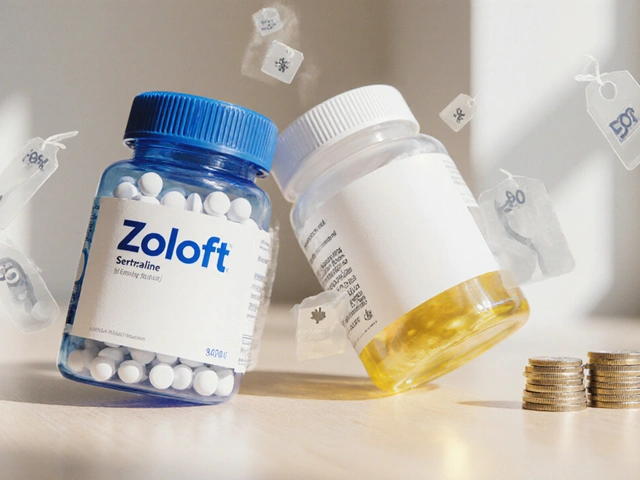Employee Health: Practical Tips for Staying Safe and Strong at Work
Feeling good on the job isn’t just about the coffee machine. Your meds, supplements, and daily habits all play a role in how you perform and stay healthy. Below are real‑world tips you can use right now, whether you’re juggling a prescription for Parkinson’s, a sleeping aid, or a new supplement.
Manage Your Medications Like a Pro
First off, keep a simple list of any prescription you take – name, dose, and when you need to take it. For drugs like Requip (ropinirole) or Ativan (lorazepam), timing matters because they can affect alertness. Store them in a locked cabinet at home and bring only what you need for the day.
If you work night shifts, talk to your pharmacist about adjusting the schedule so you don’t hit a slump when you need to be on your feet. And always let your supervisor know if a medication might cause side effects that could impact safety, like dizziness or drowsiness.
Smart Supplement Choices for Busy Professionals
Supplements can fill gaps, but they’re not a free pass to ignore a balanced diet. Before adding something like noni juice or star anise capsules, check the evidence. Some offer antioxidant benefits, yet high doses can interact with meds like Bupron SR (bupropion) or Sartel (telmisartan).
Start low, track how you feel, and keep an eye on any new symptoms. Your doctor or a pharmacist can confirm if a supplement is safe with your current prescriptions.
Here’s a quick checklist for supplement safety:
- Read the label for dosage and warnings.
- Buy from reputable sources – avoid “too cheap” deals.
- Check for interactions with any prescription you’re on.
- Stop if you notice unusual side effects and consult a professional.
Keeping this routine short saves time and protects you from unexpected reactions during a busy workday.
Stress, Posture, and Everyday Wellness
Stress isn’t just a mental thing; it can raise blood pressure and aggravate conditions like GERD, which might make drugs like Aciphex (rabeprazole) less effective. Try a 5‑minute breathing break every few hours – inhale for four seconds, hold for four, exhale for four. It’s enough to reset your nervous system without leaving your desk.
Stiffness from sitting all day can hurt scar healing after surgery or cause chronic pain. Gentle yoga stretches, like a seated cat‑cow or standing forward fold, keep muscles supple and improve circulation.
Lastly, stay hydrated. Dehydration can worsen side effects from muscle relaxants like cyclobenzaprine and make you feel foggy.
Combine these habits – medication awareness, careful supplement use, quick stress bursts, and movement – and you’ll build a solid foundation for employee health that lasts beyond the 9‑to‑5 grind.

Workplace HIV Testing: Why Offering It Benefits Employees
Discover how workplace HIV-1/2 testing boosts employee health, reduces stigma, saves costs, and meets legal standards. Learn steps to implement a successful program.
Sep 22 2025




